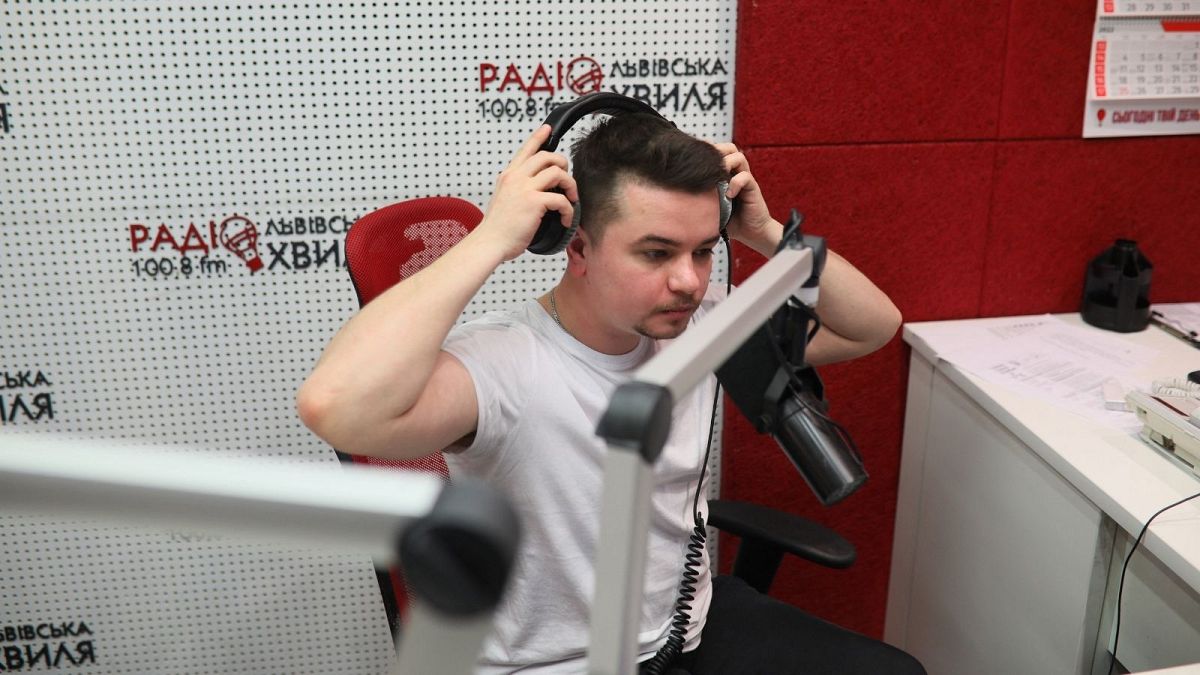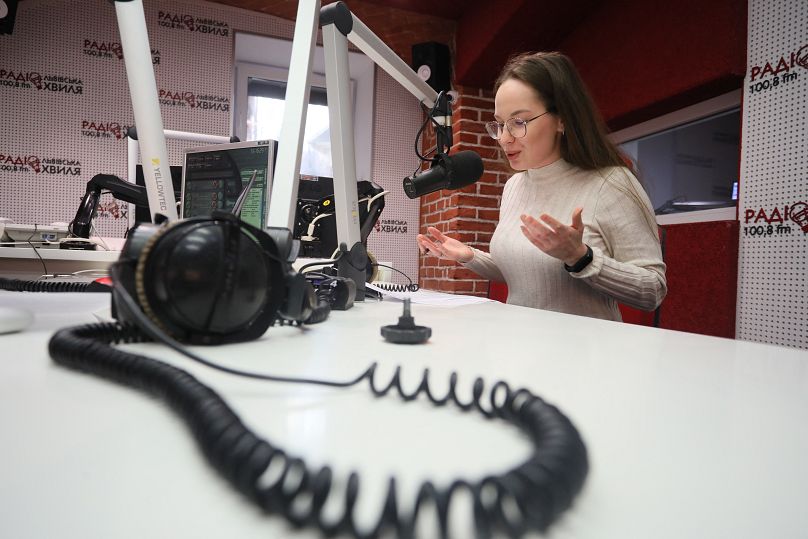Lvivska Khvylya was one of the first radio stations set up after Ukrainian independence 30 years ago, now they're a part of the Ukrainian war effort.
An iconic Lviv radio station has gone from light entertainment to hard news since Russia’s invasion of Ukraine began.
From the first day of the Russian offensive, Lvivska Khvylya, one of Ukraine's first radio stations set up after the fall of the USSR, replaced its entertainment programmes with a permanent special edition to inform its listeners about the ongoing conflict.
The station’s audience is mostly in the west of the country, a region that has remained relatively safe during the war. The studio in Lviv is 80 kilometres from the Polish border.
"We are a music and entertainment radio station, but we also do a lot of news, because citizens need information, especially at this time," says Volodymyr Melnyk, a 28-year-old DJ and presenter.
Between a playlist of Ukrainian rock and patriotic hits, Volodymyr Melnyk and his colleague and fellow DJ Andryi Antoniuk bring some levity with their humorous comments on the dark news of the day.
"We can laugh at Putin, at the Russian troops who can't take our cities, but we can't have fun like before the war", underlines Melnyk.
Putting Radio on a war footing
On 24 February, for the second time in their history, the 40-strong team Lvivska Khvylya put themselves on a war footing.
In 2014, after the annexation of Crimea and the start of the conflict with pro-Russian insurgents in the Donbas, the station had already shaken up its programs.
Since then the team has become an important link between the authorities and the population. Lvivska Khvylya informs between 300,000 to 400,000 listeners every day; a figure which has doubled since the beginning of hostilities.
Closure of schools in Lviv, the situation in southern and eastern Ukraine, and international statements are all on the menu of the 5 p.m. bulletin.
"The war affected our work a lot, because there is also a psychological factor which, at the beginning, prevented us from working", says Marta Oliyarnyk, a 27-year-old journalist.
Military or civilian losses are only made public in dribs and drabs.
"These figures terrify us, we experience them personally, but we also try to give a lot of positive information such as the human and material losses of the enemy", says Oliyarnyk.
According to the journalist, the true human toll can only be known after the end of the war.
War approaching Lviv
The station role has become even more important as shelling in Lviv began in recent days.
On the day missiles hit the Lviv airport district (not causing any deaths), Vassil Pakouch monitored the status of the dozens of telecommunications towers that relay broadcasts from Lvivska Khvylya throughout western Ukraine and as far east as Kyiv.
"These towers are critical infrastructure. When they are attacked, it is dangerous for the population because the connection is lost", says Pakouch.
The engineer, who regularly climbs to the towers to carry out repairs, says he is ready to do anything to restore the link, in the event of a bombardment.
“Even if we pray that this does not happen, if they destroy it, we will mount an antenna on a tree if necessary.”




